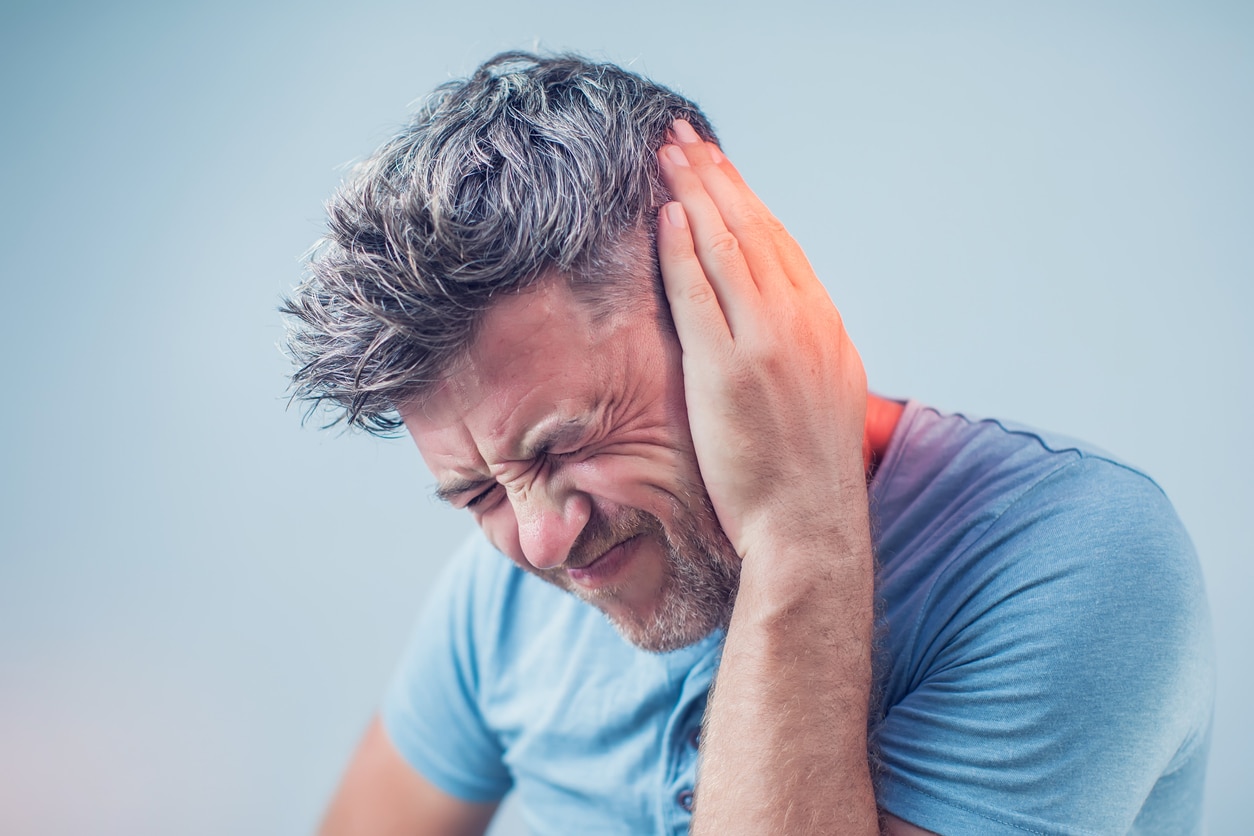Tinnitus is characterized by a ringing or buzzing in the ear with no external source. It is often a symptom of underlying conditions rather than a standalone disorder and affects approximately 50 million people in the United States.
Side Effects of Tinnitus

Tinnitus can have several side effects, including:
- Disrupted sleep. Persistent ringing or buzzing can make falling or staying asleep difficult.
- Concentration issues. The constant noise can interfere with the ability to focus on tasks, affecting work or study.
- Emotional distress. One 2023 study found that tinnitus patients show an increase in psychological symptoms, including anxiety and depression. Due to the stress and anxiety of tinnitus, you may even withdraw from social situations, causing you to miss out on Chillers Grill happy hours, park days with friends and more.
Causes of Temporary and Permanent Tinnitus
Whether your tinnitus is temporary or permanent depends on its cause. Some causes of tinnitus include hearing loss, ototoxic medication, ear infections or blocked Eustachian tubes.
Hearing Loss
With hearing loss, the disruption in the sound transmission process can cause the ear to generate its own noise, resulting in tinnitus. The permanence of hearing loss-induced tinnitus depends on the extent of the damage. Temporary tinnitus may occur after exposure to loud noise, known as a temporary threshold shift, but if the hearing loss is profound and permanent, the tinnitus is likely to be permanent as well.
Ototoxic Medications
Ototoxic medications can damage the ear, leading to hearing loss, balance issues and tinnitus. Medication-induced tinnitus can be temporary or permanent, depending on the duration of use and the extent of damage. In some cases, tinnitus resolves once the medication is discontinued, but in others, it may persist.
Infections and Blocked Eustachian Tubes
Ear conditions like infections and blocked Eustachian tubes are common causes of temporary tinnitus. Ear infections occur when bacteria or viruses infect the space behind the eardrum, causing fluid retention and pain. This fluid retention can block the ear canal and lead to tinnitus.
Similarly, blocked Eustachian tubes may arise when allergies, viruses or bacterial infections cause inflammation and mucus blockage–leading to temporary tinnitus and hearing loss. Infection or Eustachian tube-related tinnitus will typically resolve as the root cause clears.
Management Options for Tinnitus
Permanent tinnitus has no known cure. Instead, your audiologist will likely recommend one of the following symptom management options:
- Sound masking tools. Sound masking works by playing or amplifying external sounds to mask the internal noise of tinnitus. Effective tools may include hearing aids, fans or white noise machines.
- Therapy. Cognitive-behavioral therapy (CBT) or tinnitus retraining therapy (TRT) combines counseling with sound masking to help manage the emotional impact of tinnitus.
If you are experiencing temporary or permanent tinnitus, contact Speech & Hearing Associates to make an appointment with one of our experts.